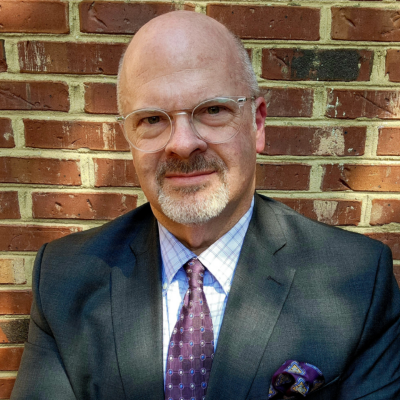Investigating and Improving the Questions You Ask Grantees

Back in the mid-2010s, I served as chair of the selection committee for the Washington, DC region’s biggest award recognizing excellence in nonprofit management. I led a group of fellow volunteers who evaluated applications from diverse organizations. It was a comprehensive process including an open-call part 1, an invitation-only part 2, a site visit for finalists, and a presentation highlighting best practices.
Over the years, we noticed that excellence in the sector was evolving, but our questions felt like they were behind the curve. The winning organizations were consistently exhibiting interesting characteristics, but we weren’t asking questions targeted at those characteristics. The sector itself continued to change, but it was a challenge to effectively adapt questions to match those changes.
What was “excellent” and what was “competent” was shifting. We needed to change up our questions.
By assessing our process and by changing our questions as a result, we received more thought-provoking and insightful responses. Our review discussions became more interesting, and the impact of the entire program was strengthened. Here are a few lessons we learned along the way.
Questions Are Your Tools
As a funder, one of your primary mechanisms for gathering information to guide your decision making is the questions you ask. Those questions can be in an application, in conversations with program officers, or during the deliberation meetings with your board. Questions are critical tools for good grantmaking.
In its blog post “Practical Tools to Help Grantmakers put Learning First,” the Johnson Center for Philanthropy reminds us how challenging this can be. “Simply put, the people who write grant applications may be surprised to discover how difficult it can be for respondents to understand and answer their questions.” Questions can have a significant impact on the relationship funders have with their grantee partners.
Ongoing shifts in the sector, the community, and philanthropy as an industry require that we assess the impact of those changes on our practices. Funders should “change up” their questions to stay relevant.
When was the last time your application was given a solid review? If it’s been more than five years, you’re behind the times. The world was very different then. Five years ago, there had been no pandemic, there was a different president in the White House, George Floyd was still alive, and inflation was 2.4%. Your application should reflect an awareness of these changes, otherwise you might come across as indifferent to the shifts in society and the sector.
“Change up your questions” can result in several types of actions:
- Add elements or dimensions to a question to clarify your goals or to encourage more precise responses.
- Make small changes, perhaps tweak the language a little or edit the question into a simpler format.
- Rewrite the whole thing. If it’s information you want to know, but the way you ask the question feels outdated or inconsistent with the times, start from scratch and rewrite it.
- Take it out. Or cover it during a conversation instead of the application. Streamline your process!
Your questions should also reflect your values as a funder. Could someone, just by looking at your application, get a sense of what your values are? Think critically about the values that you implicitly or explicitly communicate. What do your questions or materials say about you, your foundation, or your family?
Think about how your questions might be received by others. The TCC Group, in the 2023 briefing “Values-Based Communication,” reminds us that different audiences are going to receive things in different ways. They warn us not to assume everyone will understand or make the connection, even though we feel we’ve been clear about our values.
Consider this potential example: A funder values the importance of equal access to opportunities, directing support to many grassroots organizations. If that funder’s application includes lots of jargon or technical phrases such as, “Tell us about your Theory of Change,” or, “What is your program’s Logic Model?” would those questions reflect that funder’s value of equal access? What if an organization’s leader hasn’t studied nonprofit management? What if English is not their first language? Could such jargon-heavy questions unintentionally make it more difficult for these organizations?
There is nothing wrong with Theories of Change or Logic Models, but there might be other ways to ask this question so it still provides the funder with useful information without jargon.
If You Ask It, Use It
If you ask a question in your application, use that information in your decision making. Simple “We’ve always asked that” type of questions can linger on an application long after it stopped being part of the briefing provided to the board.
Your goal should be to efficiently collect the exact information you need to make a funding decision. These “relic” questions can clog up an application and make extra work for these nonprofit staff members, who are also likely completing applications for other funders, all asking variations of the same questions. If the answers are not used, drop the question. If later you need additional details, you can always ask follow-up questions. Be sure questions are tied to specific data you use for decision making.
If there are key factors that are important to you, your family, or your board, then ask a question about it. Or at least make sure it’s covered during conversations a program officer might have with an organization. Don’t guess about facts or features regarding an organization if you don’t have specific information on that topic. Add it to your process and make sure you have the facts or data in hand.
Critical factors that impact decision making can be technical, such as was the proposal or report submitted on time, or did they include the attachments. Track those and make it easy for reviewers to check those boxes.
Critical factors can also be broader ideas related to the community itself or your role as a funder. For example, accolades might be important to you, and they influence your decisions. If so, provide a way for an organization to share these types of achievements. And if you do add a question to gather information on one of these critical factors, word your question thoughtfully and strategically.
For example, if you care about addressing the “real-time” needs of the community, collect that information in a way that effectively addresses that. Adjust a question such as, “Tell us how your work impacts your clients,” into something closer to, “How do you make sure your programs are meeting your clients’ immediate needs?”
If relationships are critical to you, and you have expectations for how grantees should work with you, track your interactions with each organization, so that during evaluation meetings, you have that data in hand for all grantees. Ensuring that all critical factors are addressed in your questions guarantees that you are gathering consistent information in an equitable manner for all applicants. This enables you to use facts, not anecdotes, in your deliberations.
Learning As You Go
Changing your questions in a thoughtful and intentional manner is an effective way to shift the dynamic between you and the nonprofits you fund. It transforms what is often a transactional paper exchange into a creative conversation. If you approach it with curiosity and learning as the main driver, it can be a rewarding process.
Implement your changes, monitor the impact, and adjust as needed. Share with your nonprofit partners that you are exploring ways to promote more equitable and positive interactions with the community you serve. You are not always going to get it right, but that’s ok. And just because your rationale for making a particular change is clear in your mind, don’t assume that everyone else is going to “get it” immediately. You might need to provide applicants an explanation if a change triggers lots of “What do you mean?” responses.
Ask the nonprofits what they think about these changes. You should be seeking feedback from grantees regarding your practices in general. This is especially important when you make substantive changes to your process. You can solicit feedback through conversations or more formally through a survey. Work together to jointly understand what will enable you to make the best possible decisions.
Change up your questions and see how it can transform your grantmaking! Learn more about how to strategically and intentionally update your grant application to reflect the changes in your community and in philanthropy. Check out our webinar, Change Up Your Questions: Aligning Grantmaking with Your Values.



